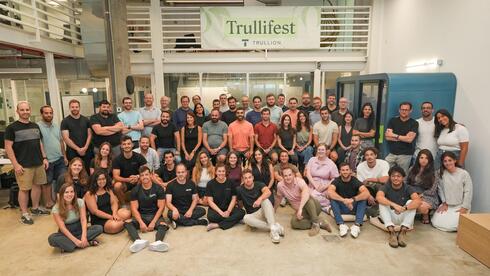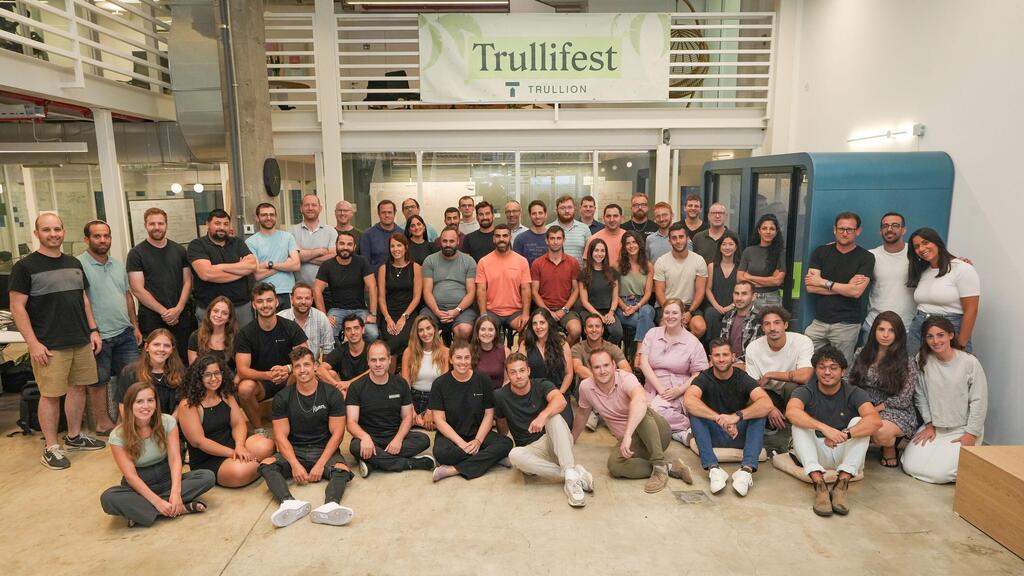
Most Promising Startups - 2024
How Trullion is transforming the accounting industry one innovation at a time
From Enron's collapse to Trullion's rise: Isaac Heller's journey to try and reshape financial reporting
Startup company Trullion, which operates in the seemingly boring field of automation solutions for the world of accounting, has become one of the hottest things in the Israeli high-tech scene. Its founder Isaac Heller went from being a strange bird to one of the most sought-after entrepreneurs in Israel. He hasn't even touched the $15 million he raised last year, but the local brass is already buzzing with rumors of another large fundraising that will be completed very soon. This is how it is when investors want to jump on the successful bandwagon that is racing not only in terms of promises but also in terms of income.
Trullion already enjoys an annual revenue rate of more than $10 million and in the contracts already signed it has the potential for much higher numbers. Leading international accounting firms such as EY and Deloitte recommend Trulion's product to their clients and a few months ago it signed an agreement with one of the largest companies in the world, whose name cannot be disclosed at this stage.
The story of Trullion actually begins in Texas, where Heller was also born. The Texan energy giant Enron, which was based in Houston and employed about 30,000 workers, collapsed in 2001 after it became clear that its reports had been distorted for years. The company lost more and more money, while its executives had golden toilets. The scandal led, among other things, to the liquidation of Arthur Andersen, one of the largest accounting firms in the world (and also one of the largest in Israel) which was responsible for the Enron reports - and for a profound change in the American regulation concerning financial reporting and corporate responsibility. The Sarbanes-Oxley Act that was enacted in its wake changed the rules of the game and led to a paucity of IPOs on Wall Street in the first decade of the century, because the companies had difficulty coping with the new and stricter reporting requirements.
Heller (38) was only 15 years old, but the event had a dramatic effect on him. "I always read the business sections as well. I was always an entrepreneur. Already by the age of 12, I had an eBay store: I would go to Walmart and Target, buy packs of basketball cards, take out the more valuable ones, and sell them one by one on eBay for a much higher price. I made several thousand dollars even before my Bar Mitzvah," he told Calcalist. But then his business collapsed, also in a big scandal, at least for a 13-year-old boy. "I heard about a boy older than me who wanted to sell a large collection of cards that he was no longer interested in. I had a long negotiation with him and we agreed that I would pay him $300 for the collection, which I saw had amazing cards in it. I asked my father for some of the money I received for my Bar Mitzvah and took it to school to pay the kid, and then the coach caught me with the money and it became a big mess because 13-year-olds can't walk around school with that kind of money. My parents had to come, and I had to close the eBay store."
Since the drama of the sports cards and Enron, Heller became orthodox, got married, and immigrated to Israel in 2019. During that time he also founded Trullion and registered it as a company whose goal is to develop software that will enable automation of the work processes of accountants and CFOs that will prevent mistakes and deceptions. The hint is in the name - True to millions. He was later joined by Amir Boldo, who is responsible for the technology aspect of the company. Trullion's software enables automatic uploading of documents — PDF files, Excel tables with data, even contracts with customers and suppliers — to accounting systems and intelligent data entry using AI. Its advantage is that it deals with the latest regulations, which are updated all the time, at a rate that the existing software - those that the German SAP and the American Oracle developed decades ago and that dominate the market - are not able to do, and therefore require extensive manual input.
The accounting market has hardly been disrupted until now. On the one hand, this is a great opportunity, but on the other hand, is it difficult to wean the industry from old working methods and habits?
"Before we started offering the system to accountants, I directed the product to CFOs and accountants. So at the beginning of 2020, just before the pandemic, I created an ad on LinkedIn asking who wanted AI to automate financial reports. By the summer, seven clients had already signed with me. At the same time, the pandemic scared me a lot, because I only had half a million dollars from the angels that was about to run out. I realized that I had to raise more money. None of these clients had paid anything yet and the market froze. The Israeli funds rejected me, here they mainly like cyber, but in the United States there is more awareness of the field of finance, and that's where they got fired up."
It was Daniel Loeb’s Third Point Ventures and Michael Eisenberg of Aleph who got excited by Trullion’s promise. Eisenberg entered the picture after seeing Heller’s post on LinkedIn and after another accounting scandal that brought down a huge company. This time it was the German payment giant Wirecard that collapsed after a $1.9 billion "hole" was discovered in its balance sheet. Eisenberg tweeted on his Twitter account that he is looking for disruption in an industry dominated by a few large firms that collectively bring in about a quarter of a trillion dollars a year. Heller responded the same day, telling Eisenberg that such disruption was taking place in Jerusalem. "We got along right away, and Aleph [Eisenberg's fund] led our Seed round of $3.5 million together with the American VC fund Greycroft," recalls Heller, "and then the big investors from the United States came as well, led by Loeb. He understands the field well, as an activist investor who makes money from reading reports.”
Is there a fear that the giant companies in the industry or large software companies will develop similar systems that will make yours obsolete?
"Dealing with the giant players in the field will definitely be the most challenging part of Trullion’s journey, but we are building a product that can answer all parties and reassure them - the financial people in the organizations will know that there are no mistakes, and also for the accountants who today do not really go through everything, but only check a sample, this will give them peace of mind. I saw the problems with such systems everywhere I worked, from airlines to real estate companies, and the pieces of the puzzle came together for me. No matter what the size of the company, there will always be difficulties around issues of revenue recognition and accounting records, and the regulation only gets more and more complicated, the demands on the companies are increasing."
Company ID
Trullion
Sector: Enterprise Software
Established: 2019
Founders: Isaac Heller and Amir Boldo
Employees: 85, in Israel and the United States
Fundraising: $35 million
Investors: Aleph, TPV, Greycroft, StepStone Group














